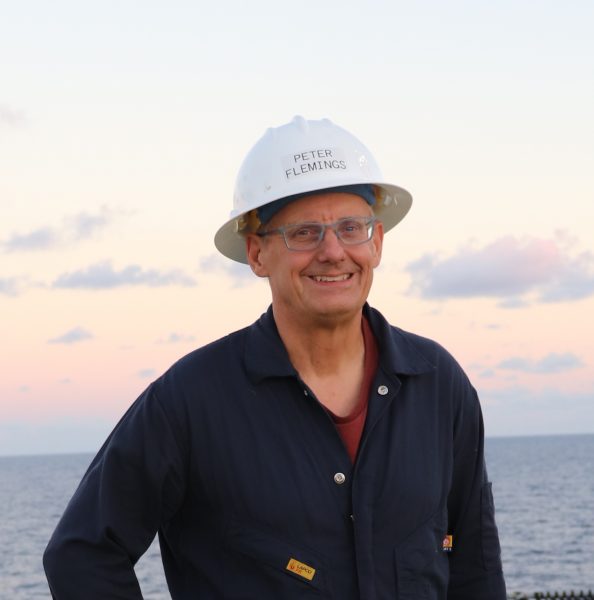Peter Flemings Wins Robert R. Berg Outstanding Research Award
March 13, 2024

Jackson School of Geosciences Professor Peter Flemings is the recipient of the 2024 Robert R. Berg Outstanding Research Award, a top honor bestowed by the American Association of Petroleum Geologists, a worldwide professional association.
Over the course of his career, Flemings has worked to apply his academic research to effect real-world breakthroughs. His work analyzing how pressure within Earth’s crust is controlled by geology and fluid flow, for example, shaped how oil companies now safely search for hydrocarbons.
Flemings and his students explored how the evolution of rock layers controls the flow of fluids within them and the distribution of pressure underground, which allowed them to develop systematic approaches to predicting that pressure.
“I’m very proud of that — it’s probably my best idea,” Flemings said. “The phenomenon is global.”
This work has proven to be key for oil companies, which would previously drill at the top of the most pressurized point of hydrocarbon reservoirs. Flemings and his students showed that in these situations where pressure in the reservoir is unusually high, companies will be more successful and drilling conditions will be safer not at the highest point, but instead at subsidiary structures.
This discovery is driving exploration strategy in basins such as the Gulf of Mexico where geopressure is present.
The research was also fundamental in understanding the geologic conditions that contributed to the 2010 Deepwater Horizon blowout in the Gulf of Mexico. For two months following the oil spill, Flemings served as a member Energy Secretary S. Chu’s BP Macondo Well Integrity Team in Houston. The team provided guidance on steps to control the blowout. He and student Will Pinkston later published a paper in Scientific Reports about how an abrupt pressure decline with depth contributed to the conditions that led to the well failure.
As BP drilled into the well, they went from high to low pressure. In order to not fracture the well at the bottom, they had to lower the pressure. That meant they had to withstand the higher pressure above, complicating the process of both drilling and completing the well, Flemings said.
The Berg Award recognizes a singular achievement in petroleum geoscience research. Flemings is the fifth scientist affiliated with the Jackson School to receive it.
Demian Saffer, director of the University of Texas Institute for Geophysics (UTIG), where Flemings is a research professor, said that Flemings had earned his place in the hall of fame of petroleum geophysicists.
“Peter has made foundational contributions to the science of fluid flow in the subsurface, and pioneered methods that have profoundly changed our understanding of forces shaping sedimentary basins and continental margins. On a practical level, his work has modernized how we explore petroleum systems,” he said. “In many ways, this award is about more than any one achievement. It’s about Peter’s ability to straddle between the fundamental and the practical, which is I think a hallmark of his work.”
Flemings’ most recent project involves retrieving samples of methane hydrates from deep beneath the Gulf of Mexico’s seafloor. He is leading the Department of Energy-funded project to study the energy-rich substance that makes up as much as 20 percent of the world’s mobile carbon. Watch a short documentary on the research.
